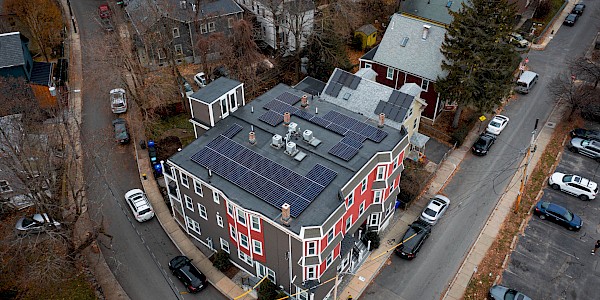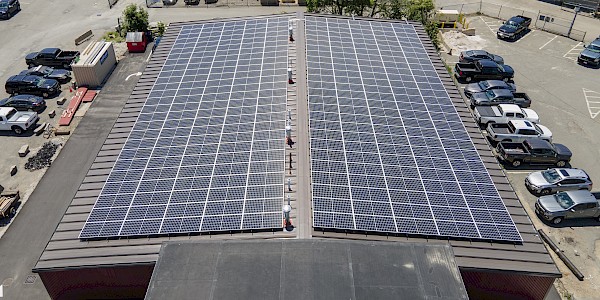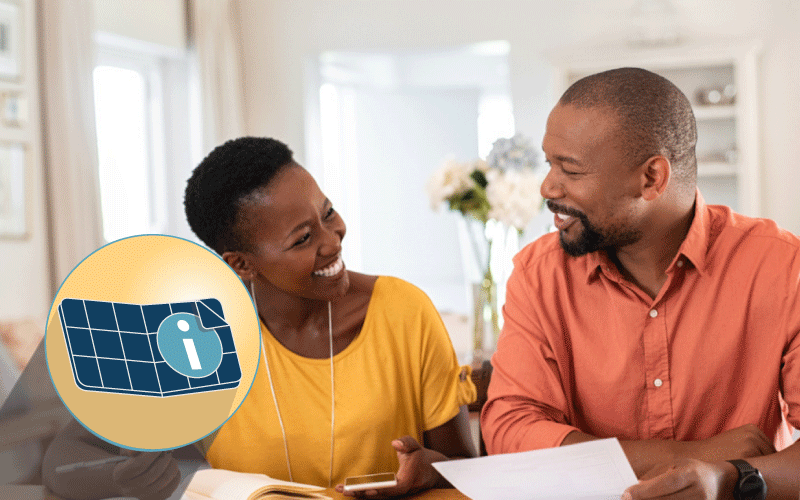5 Things to Consider When Planning for Solar
Feb. 10, 2021
A well-designed solar PV (photovoltaic) system that is customized to your exact energy needs isn’t something that comes with next-day delivery or one-click ordering. When it comes to going solar, consider what goes into the planning before going solar and the full timeline will allow you to get the most out of your investment in solar energy, and help you maximize on the rebates and savings available for solar installation.
But timing isn’t the only thing to think about when going solar. If you’re considering having solar panels installed, you probably have a lot of other questions as well, like “how are you going to pay for the cost of solar?” And, “should you reduce your home energy usage before you install solar?”
Here are the five things you should consider about your solar installation while you are still in the research and planning phase.
-
Should You Reduce Your Energy Usage First?
One of the primary determining factors in how many solar panels and thus how much your solar PV system is going to cost is how much energy your home uses each day. If you can increase the overall efficiency of your home first, you can reduce the number of solar panels required to cover your energy usage!
Some energy efficient upgrades that can help lower your annual energy consumption includes:
Sound expensive? Not when you use the rebates of the Mass Save Program. This program is aimed at helping Massachusetts homeowners improve their energy efficiency and home comfort through home improvement rebates, complimentary energy-saving products, and building science diagnostics.
Mass Energy Experts provides no-cost Mass Save energy audits, called Home Energy Assessments, that will uncover areas where your home is losing energy, like tiny air holes hidden throughout your home, or areas where insulation is lacking or damaged.
Making these home improvements before you go solar can increase your energy savings both before and after you install your solar energy system.
-
How Old is Your Roof?
Most solar energy systems will last 25+ years and the average roof can last anywhere from 10 and some upwards to 50 years depending on the material. For example, asphalt shingles can range between 20-30 years on average.
With this in mind, if your roof has seen better days or it is within its last 5-10 years of life, you may want to consider combining a roof replacement or roofing repairs alongside your rooftop solar installation.
-
Are There Obstacles In Your Path?
Every house and roof is different so even if your property or roof is a suitable candidate for solar you might have some obstacles in your path to getting that optimal level for solar energy production. Trees, other landscaping, and roof features could all affect the amount of sunlight your future solar PV system could receive.
Addressing these in the planning stage and either taking action to reduce their shading or obstruction can help move you one step closer to solar installation. If you do have concerns about your roof’s potential for going solar, don’t hesitate to reach out to our solar experts today to talk through your questions.
-
What Solar Financing Options Are Available?
Before you sign your solar contract on the dotted line, you are going to want to know what your financing options are if you are not in a position to pay cash upfront, as well as what kind of solar rebates and incentives are available to reduce the total cost of your solar installation.
Available Solar Incentives:
-
The Federal Solar Investment Tax Credit – After the solar tax credit extension at the end of 2020, the federal solar tax credit for 2021 and 2022 allows you to take 26% of your solar installation costs and subtract it from your federal tax liability.
-
Massachusetts Solar Tax Credit - In addition to the federal solar tax credit, you can also receive an additional state tax credit of 25% of your solar installation cost up to $1000.
-
Massachusetts Property & Sales Tax Exemptions - Here in Massachusetts solar energy systems also qualify for sales and property tax exemptions!
-
SMART Incentives – Get a monthly check for the next ten years based on every kWh generated by your solar panels or solar battery storage system, through the Massachusetts SMART solar incentive program.
-
Net Metering – Through net metering, your excess solar energy production that gets sent back into the grid can offset any grid-supplied energy your home requires through a one-for-one credit given by the utility company.
-
ConnectedSolutions – If you also combine your solar energy system with a solar battery, and are a National Grid or Eversource utility customer, you could join their ConnectedSolutions program to receive an additional payout twice a year for solar battery usage during peak demand response times.
Solar Financing Options:
After taking advantage of all the solar incentives here in Massachusetts, you can then look to solar financing options to cover your remaining costs. We offer two solar financing options through the Mass Solar Loan and Sungage Financial.
A solar loan gives you all of the benefits of ownership and covers 100% of your upfront costs, and when combined with other incentives, you can be cash positive on your new solar PV system in the first year!
-
Solar Takes Time To Design and Install
While the physical installation of solar panels on your roof takes only 1-5 days to complete, there is more to the solar installation process once you’ve signed your contract and this process tends to take between 90 to 120 days. You don’t want to miss out on all the sunny days ahead by waiting to get started on the path to going solar.
Design
Good things take time, and solar design is one of those “good things”. Here at Boston Solar, we’ve completed over 4,500 solar installations in the state of Massachusetts and have streamlined our solar design process down to between 30 and 45 days. This gives us the right amount of time to engineer a system of solar PV panels, inverters, and optional battery storage, like Tesla Powerwall, that is customized to your energy usage and the amount of sunlight your home gets throughout the year.
Permitting
This isn’t the only step of the installation process. It takes a near equal amount of time to design a solar PV system as it does to get the local permits (30 to 40 days). Your Boston Solar Customer Experience Coordinator will be in charge of pulling all these permits as quickly as possible to ensure there are no hiccups once installation starts.
Installation
Speaking of installation, once the Boston Solar crew shows up to start the installation process, you can expect it to take between one and five days. This timeline is dependent on how complicated your solar design is, as well as any hurdles that pop up. These can include weather delays, structural problem solving, or quality control issues that can’t be identified off-site.
Inspecting and Commissioning
Once your solar panel system has been installed, our Boston Solar team will check and review the work completed and attend all inspections by your local building department before your system can receive permission to operate and be turned on in service. This process tends to take an additional 15 to 30 days.
Now’s the time to start your solar journey
If you want to start enjoying your solar panels as soon as possible, don’t wait for the peak of the summer sun to get started on your solar journey.
Contact Boston Solar, the #1 residential solar installer based in Massachusetts, today to get started with a free solar quote and set up an appointment with our team of solar experts to get all your questions answered and find out if solar is right for you.
Think you’re ready to install solar? Trust the number one Massachusetts-based solar installation company, Boston Solar. Schedule a free solar quote at 617-858-1645 or get in touch here.




